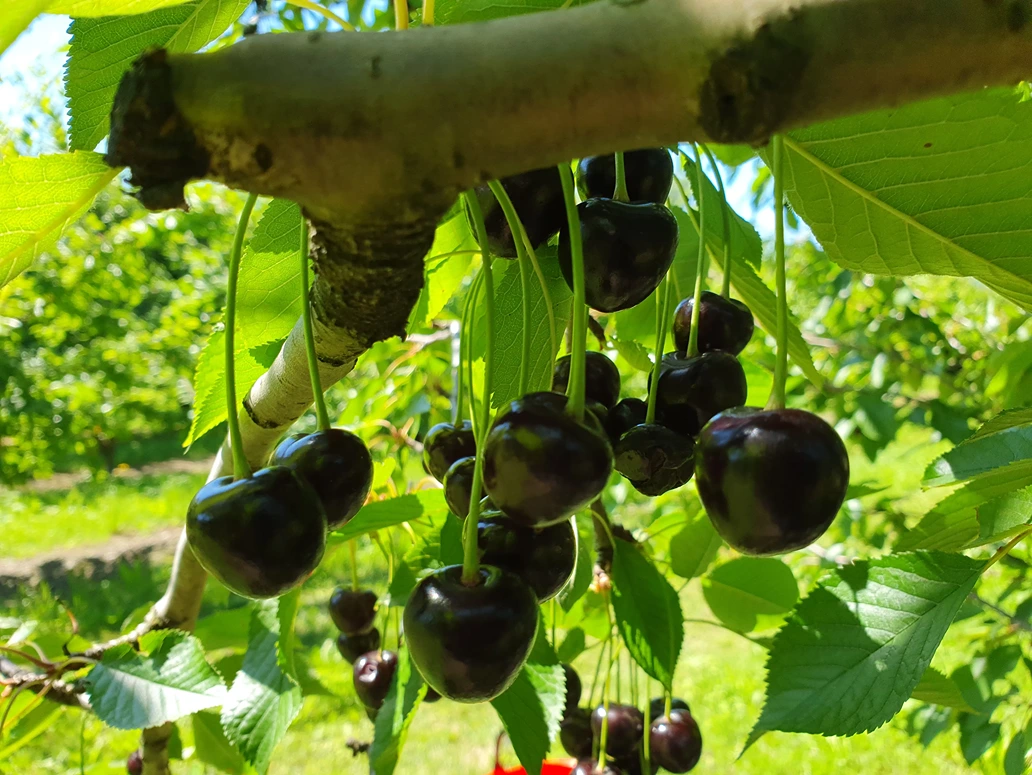Cardiovascular diseases (CVDs) are among the leading causes of mortality worldwide, affecting millions of people each year. Several studies suggest that diets rich in fruits and vegetables can significantly reduce risk factors associated with these conditions. Among the various options, cherries and berries stand out as foods rich in phenolic compounds such as anthocyanins and flavonoids, renowned for their antioxidant, anti-inflammatory, and vasodilatory properties.
Cherries, both sweet and tart, as well as berries like blueberries, raspberries, blackberries, and strawberries, contain significant amounts of bioactive substances that protect the cardiovascular system. These compounds can reduce oxidative stress and inflammation, improve lipid profiles and endothelial function, and lower blood pressure. Several studies have shown that regular consumption of these fruits can have significant protective effects against cardiovascular diseases.
Tart cherries, for example, are rich in anthocyanins like cyanidin-3-O-glucoside. Some research indicates that consuming tart cherry concentrate reduces blood pressure in individuals with mild hypertension. These results are attributed to the ability of anthocyanins to promote the dilation of blood vessels. Similarly, sweet cherry juice has demonstrated positive effects on blood pressure and the reduction of inflammatory markers.
Berries also offer remarkable benefits for cardiovascular health. Blueberries, blackberries, and raspberries are rich in anthocyanins and flavonoids, which enhance vascular endothelial health by mitigating oxidative stress-induced damage. Studies on adults with metabolic syndrome have shown that consuming dried blueberries improves endothelial function and reduces LDL cholesterol levels. Additionally, raspberries and strawberries have been shown to lower blood pressure and improve lipid profiles in various population groups.
Another important aspect is the contribution of these fruits to managing obesity and type 2 diabetes, two conditions closely linked to increased cardiovascular risk. The anthocyanins and phenolic acids found in cherries and berries can reduce fat absorption by inhibiting lipolytic enzymes and improve insulin sensitivity, thus aiding in weight management and glucose metabolism.

Beyond their direct benefits on cardiovascular risk factors, these fruits also exhibit antioxidant and anti-inflammatory properties. Their ability to reduce inflammatory markers such as IL-6, TNF-α, and CRP and to boost the activity of antioxidant enzymes like glutathione peroxidase has been demonstrated in both animal models and human clinical studies. These effects help counteract chronic inflammation, a key factor in the development of many cardiovascular diseases.
Despite these promising findings, challenges remain. The phenolic composition of these fruits varies depending on cultivation conditions, varieties, and processing methods, making it difficult to establish optimal dosages and personalized consumption strategies. Nevertheless, the importance of including cherries and berries in a balanced diet is clear.
In conclusion, cherries and berries represent a valuable natural tool for preventing cardiovascular diseases. Thanks to their richness in bioactive compounds, these fruits not only improve heart health but also contribute to overall well-being, offering a tasty and at the same time healthy approach.
Source: Carvalho, F., Lahlou, R. A., & Silva, L. R. (2024). Phenolic Compounds from Cherries and Berries for Chronic Disease Management and Cardiovascular Risk Reduction. Nutrients, 16(11), 1597. https://doi.org/10.3390/nu16111597.
Images:SL Fruit Service; Freepik
Andrea Giovannini
University of Bologna (IT)
Cherry Times - All rights reserved











